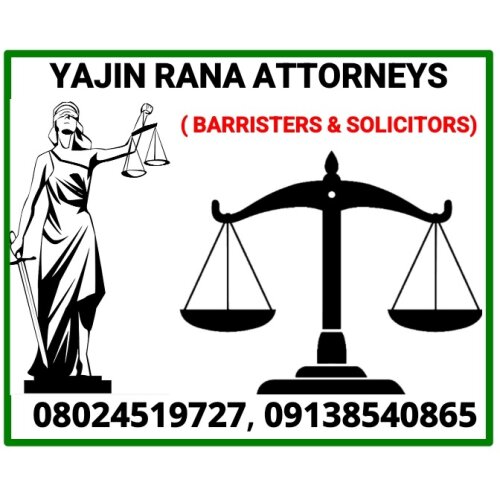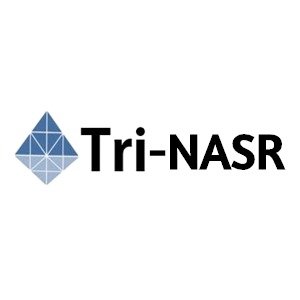Best Conveyancing Lawyers in Kano
Share your needs with us, get contacted by law firms.
Free. Takes 2 min.
Free Guide to Hiring a Real Estate Lawyer
List of the best lawyers in Kano, Nigeria
About Conveyancing Law in Kano, Nigeria
Conveyancing in Kano, Nigeria refers to the legal process of transferring property ownership from one party to another. This process involves a series of documentation, investigations, and legal steps designed to ensure that the transfer is legal, clear of disputes, and recognized by the authorities. In Kano, like the rest of Nigeria, conveyancing is governed by a mix of federal and state property laws, customary law practices, and administrative regulations enforced by various government agencies. Whether you are buying, selling, or transferring land or buildings in Kano, understanding local conveyancing law is essential to ensure a secure and lawful transaction.
Why You May Need a Lawyer
Engaging a lawyer for conveyancing in Kano is important because property transactions often involve complexities such as unclear land titles, boundary disputes, and compliance with governmental procedures. Some common situations where a lawyer’s assistance is crucial include:
- Purchasing land or property and verifying the legitimacy of the title.
- Selling property and preparing the required legal documents.
- Transferring ownership within family, such as gifts or inheritance.
- Resolving disputes over land boundaries or property rights.
- Applying for government consent, which is mandatory for most land transactions under Nigerian law.
- Dealing with mortgages or other encumbrances on the property.
Local Laws Overview
Conveyancing in Kano operates under both national and local frameworks. Key aspects of local laws relevant to conveyancing in Kano include:
- Land Use Act (1978): This national law governs all land in Nigeria and vests ownership in the government, requiring individuals and entities to obtain a Certificate of Occupancy for lawful use and transfer of land.
- Kano State Land Administration Laws: Specific rules and procedures for applying for consent, registering property, and paying appropriate taxes and fees are administered at the state level.
- Customary Law Practices: In some cases, customary law determines land ownership and transfer, especially in rural areas or family land matters.
- Registration Requirements: All property transactions must be documented in writing and registered with the relevant land registry to be legally recognized.
- Consent of the Governor: Any transfer of interest in land in Kano requires the consent of the State Governor, as mandated by the Land Use Act.
Compliance with these laws is essential for ensuring a valid and uncontested property transaction in Kano.
Frequently Asked Questions
What is conveyancing?
Conveyancing is the legal process of transferring ownership of land or property from one person to another, involving documentation, title investigation, and registration.
Is it mandatory to use a lawyer for conveyancing in Kano?
While it is not strictly mandatory, it is highly advisable to use the services of a lawyer in Kano for conveyancing. This helps ensure all legal requirements are met, and reduces risks of future disputes.
What documents do I need for a property transfer in Kano?
You generally need a Certificate of Occupancy, title documents, a purchase agreement, Deed of Assignment, tax clearance certificates, and government consent documents, among others.
How long does conveyancing take in Kano?
The timeline varies, but standard conveyancing procedures can take several weeks to a few months, depending on how quickly due diligence, consent, and registration processes are completed.
What is the importance of the Governor’s consent in Kano property transactions?
The Governor’s consent is required for all land transfers as per the Land Use Act. Without this consent, the transaction is invalid and not legally recognized.
How do I confirm that the property title is genuine in Kano?
A lawyer can help you conduct a title search at the Land Registry, verify the Certificate of Occupancy, and check for any existing encumbrances or disputes.
What risks do I face if I do not register my property transaction?
Unregistered property transfers can be declared void, may not be recognized by law, and expose you to the risk of losing rights to the property.
Can family or customary land be conveyed differently in Kano?
Yes, customary law may apply, especially for family land. Special procedures and documentation may be required, and it is essential to comply with both customary and statutory rules.
Are there taxes and fees involved in conveyancing?
Yes, property transactions attract various charges including stamp duties, registration fees, consent fees, and sometimes capital gains tax. A lawyer can advise on all applicable fees.
What happens if there is a dispute over the property after conveyancing?
If disputes arise after conveyancing, legal action may be necessary. Having a lawyer involved from the start helps reduce the risk and provides a clear trail of documentation in case matters need to be resolved in court.
Additional Resources
If you need more help regarding conveyancing in Kano, the following organizations and bodies can provide information or support:
- Kano State Ministry of Land and Physical Planning
- Kano State Land Registry
- Kano State Branch of the Nigerian Bar Association
- Nigerian Land Use and Allocation Committee (LUAC)
- Local government area offices responsible for customary land matters
- Nigerian courts for dispute resolution
Professional legal practitioners with experience in real estate and property law in Kano can also provide tailored advice.
Next Steps
If you need legal assistance with conveyancing in Kano, Nigeria, consider the following steps:
- Contact a qualified property lawyer based in Kano with local experience and knowledge.
- Gather all documents related to your property or proposed transaction.
- Schedule an initial consultation to discuss your needs and understand the legal requirements.
- Work with your lawyer to conduct due diligence, including title verification and liaising with the relevant authorities.
- Ensure all documents are prepared, reviewed, and registered in line with Kano State laws and regulations.
- Keep copies of all completed documents for your records and future reference.
Navigating conveyancing can be complex, but with the right legal support, you can ensure a safe and secure property transaction in Kano, Nigeria.
Lawzana helps you find the best lawyers and law firms in Kano through a curated and pre-screened list of qualified legal professionals. Our platform offers rankings and detailed profiles of attorneys and law firms, allowing you to compare based on practice areas, including Conveyancing, experience, and client feedback.
Each profile includes a description of the firm's areas of practice, client reviews, team members and partners, year of establishment, spoken languages, office locations, contact information, social media presence, and any published articles or resources. Most firms on our platform speak English and are experienced in both local and international legal matters.
Get a quote from top-rated law firms in Kano, Nigeria — quickly, securely, and without unnecessary hassle.
Disclaimer:
The information provided on this page is for general informational purposes only and does not constitute legal advice. While we strive to ensure the accuracy and relevance of the content, legal information may change over time, and interpretations of the law can vary. You should always consult with a qualified legal professional for advice specific to your situation.
We disclaim all liability for actions taken or not taken based on the content of this page. If you believe any information is incorrect or outdated, please contact us, and we will review and update it where appropriate.















